This report covers developments on the freedoms of expression, association and peaceful assembly in Kazakhstan from July 2020 to January 2021. It was prepared for the CIVICUS Monitor by the International Partnership for Human Rights (IPHR) and the Kazakhstan International Bureau of Human Rights and Rule of Law (KIBHR) based on KIBHR’s monitoring of the situation in the country.
Events during this reporting period form part of the strongest wave of politically motivated repression in Kazakhstan since the aftermath of the 2011 events in Zhanaozen. Over 30 people were detained and are currently in custody across the country in retaliation for their peaceful exercise of the freedoms of expression, association and assembly. On top of that, at least 50 people detained for exercising their freedoms have been sentenced to prison, and around 250 have been summoned for interrogation as suspects and witnesses in criminal cases initiated in this context. Most of these people have been charged with participating in a banned extremist organisation under Article 405 of the Kazakhstani Criminal Code, a provision that the authorities use to target individuals associated with the opposition Democratic Choice of Kazakhstan (DVK) and Street Party movements. Both movements have been banned and labelled as extremist organisations by a court.
https://twitter.com/IPHR/status/1351197876551114754?ref_src=twsrc%5Etfw%7Ctwcamp%5Etweetembed%7Ctwterm%5E1351197876551114754%7Ctwgr%5E%7Ctwcon%5Es1_c10&ref_url=https%3A%2F%2Fmonitor.civicus.org%2Fupdates%2F2021%2F04%2F26%2Fwave-political-repression-witch-hunts-activists-marred-elections-and-scores-arrests%2F%3Ffbclid%3DIwAR0D_ziWY0Xa6kd0glzAEaelxvuwfKX3-uIJabfLsR_OVgD-DTycaArKM4g
In the reporting period, we also documented a problematic trend regarding the conviction of citizens holding single pickets. Since the law on peaceful assembly was amended in May 2020, the vague wording of the legislation, it establishes a de facto permission regime from the authorities prior to holding a demonstration, even when holding single pickets.
On 10th January 2021, Kazakhstan held parliamentary and local council elections. Voters were faced with a limited selection of candidates, and the elections took place against a background of a lack of genuine political competition, with the ruling Nur Otan party dominating political life and opposition parties not being able to run. Prior to and during the elections, the Kazakhstani authorities took steps to prevent independent election observers from monitoring what was happening at polling stations. During the elections, the Kazakhstani authorities violated the right to free and fair elections and infringed fundamental rights and freedoms of citizens in violation of their obligations under international law. These actions included detaining dozens of peaceful activists and protestors, as well as “kettling” protestors for several hours on election day in sub-zero temperatures, resulting in at least two people being hospitalised with frostbite. (Kettling is a police tactic for control of large crowds and involves cordons of police officers who contain protestors in a small area and do not let them leave).
Activist Nurzhan Mukhammedov was detained. Nurzhan was charged with participation in an extremist organization. The arrest and initiation of a criminal case against Nurzhan Mukhammedov are associated with his political activities and with criticism of the leadership of KZ. pic.twitter.com/2M9baSAzaM
— FreeKazakhs (@FreeKazakhs) January 7, 2021
Expression
Silenced for speaking up about injustice
The persecution of journalists, bloggers, civil society activists, members and supporters of opposition movements, participants in anti-government rallies and others critical of the authorities continued in Kazakhstan during the reporting period. In the context of the COVID-19 pandemic, this pattern has been further reinforced, as the authorities have used the pandemic as an excuse to justify repression.
The media landscape in Kazakhstan remains extremely restricted, and journalists work under serious pressure. While “slander” was decriminalised in June 2020, KIBHR’s monitoring during the second half of 2020 shows that a growing number of journalists and activists have instead been charged under the broadly worded criminal code provision of “knowingly disseminating false information”, including in relation to their criticism of the government’s COVID-19 response. In addition, people in power continue to use defamation lawsuits as a tool of retaliation against critics.
On 3rd July 2020 Dos Ilyashev, activist and brother of convicted civil society activist Alnur Ilyashev was ordered by a court to pay KZT 50 000 (100 EUR or 120 USD) in compensation to Vyacheslav Banshchikov, a member of the presidential Nur Otan party and deputy of Almaty Maslikhat Municipal Council, for allegedly discrediting his honour, dignity and reputation. Banshchikov sued Ilyashev for posting a video online claiming that government agencies had favoured Banshchikov’s company Samal in unfair tender procedures. Banshchikov had originally requested 1 million KZT (1965 EUR or 2385 USD) in compensation.
In addition, on 3rd July 2020, a local court ruled against well-known human rights activist Elena Semenova in a defamation court case initiated against her by the administration of prison ES 164/4 in Zarechnoe village in Almaty Region. On 14th April, Semenova published reports about torture committed against a prisoner held in this facility as covered by the CIVICUS Monitor. The court ruled that her post was “untrue” and “damaged the business reputation” of the prison and ordered Semenova to retract her statements on Facebook. She was also ordered to pay 95 000 KZT (187 EUR or 226 USD) for legal costs related to the case. On 13th July, Pavlodar City Court also satisfied the lawsuit on damage to “honour and business reputation” initiated by Gulzimre Myrzaly, a medical employee from the UK-161/2 prison, who sought an official apology and retraction from Semenova. This case was related to a Facebook post in which Semenova reported a mass poisoning of prisoners in the prison.
On 8th July 2020, Aigerim Baimuratova, civic activist and blogger from Oskemen, was interrogated by police because of her reposts of material published by Mukhtar Ablyazov, exiled leader of the banned DVK movement.
On 11th July 2020, law enforcement officials searched the apartment of civil society activist Zhenis Akimov before taking him to a police station for interrogation in relation to an investigation under Criminal Code Article 274 (“knowingly spreading false information”). Akimov had been distributing leaflets about the high mortality rate of COVID-19 patients and the lack of sufficient medicine and respirators.
Danaya Kalieva and Marat Turymbetov, two civil society activists who had investigated corruption allegations related to Zhilstroybank and posted their findings on Facebook, were summoned for questioning by police on 20th July 2020. Their electronic devices were confiscated at the request of the bank’s management. The case has since been closed by police investigators.
On 23rd July 2020, singer Talgat Kenzhebulatov (known as Kental) was found guilty of illegally wearing a police officer’s uniform and fined 13 890 KZT (27 EUR or 33 USD) under Article 675 of the Administrative Code. The charges were based on a TV comedy sketch in which Kenzhebulatov played a police officer and thus, his conviction violated his right to freedom of artistic expression.
On 30th July 2020 Al-Farabi District Court in Shymkent sentenced blogger Beybars Raimbekov (alias Ruslan Zhanpeisov) to one year’s imprisonment on charges of intentionally inflicting moderate bodily harm on the owner of an expensive car. Raimbekov had sprayed pepper spray at the car owner after pointing out that he was not wearing his seat belt, as a result of which the car owner physically attacked the blogger. The car owner was not charged. There is reason to believe that the charges and disproportionately harsh sentence against Raimbekov were politically motivated as he is known for his criticism of the police on social media.
On 20th August 2020, civic activist Aibek Sabitov went on trial in Nur-Sultan on charges of publicly insulting an official (Article 378 of the Criminal Code) after he said “cops are cowards” during a January meeting with police officials. The activist had gone with a group of other activists to ask police officials to clarify why they were being subjected to pressure. On 14th September, Sabitov was found guilty and ordered to pay a fine of 212 080 KZT (418 EUR or 508 USD).
On 27th August 2020, Almaty-based blogger Anton Budarov, who runs the YouTube channel “Civil Patrol Kazakhstan” was summoned for questioning in a criminal case opened against him on charges of knowingly disseminating false information (Article 274). Budarov had earlier posted a video alleging that a senior police official had embezzled funds from the state budget. Budarov subsequently left Kazakhstan.
On 1st September 2020, Petropavlovsk-based lawyer Pavel Afanasyev, former employee of KIBHR and Deputy of the Petropavlovsk City Maslikhat, was dismissed from the North Kazakhstan State University, where he was teaching in the legal department. His dismissal came after he spoke out against the illegal transfer of ownership of public kindergartens to trust funds. After Afanasyev’s and other media coverage of the case, ownership of the kindergartens was returned to the city – but it cost Afanasyev his job.
On 30th November 2020, Shymkent-based activist Nurzhan Mukhammedov was prosecuted for insulting police officers and ordered to pay a fine of 222 240 KZT (around 430 EUR or 520 USD) by the Karatau District Court. Mukhammedov reported that two plainclothes police officers had visited his house while his children were home alone. “I came home, the children are scared. They are crying, they say, two policemen came and told them that they would take them away and their parents would never find them again.” He had broadcast the incident on social media, which resulted in the court imposing the fine.
Bloggers also faced pressure and prosecutions for sharing or conducting “unofficial” opinion polls in the run-up to the elections on 10th January 2021. By law, official permission is required to conduct an opinion poll.
- On 21st December 2020, Nur-Sultan-based blogger Makhambet Abzhan was summoned for questioning by the Prosecutor’s Office after posting a poll on his Telegram channel entitled “Which political party would you vote for if there was no fraud?”. Blogger Nasima Korganbekova was summoned for questioning after reposting an authorised poll conducted by an NGO.
- On 11th January 2021, a local court in Taldykorgan near Almaty fined blogger Kairat Abdrakhman 41 670 KZT (81 EUR or 98 USD) for conducting an unlawful opinion poll (under Article 120 of the Administrative Code). He had posted an unofficial poll on social media concerning attitudes toward the elections and local deputies.
Association
The reporting period saw a great number of people prosecuted for allegedly supporting the DVK or Street Party opposition movements. The wave of repression against those accused of being associated with these movements, which do not advocate or endorse violence, has been under way since the DVK was banned as extremist by a court in 2018, and the Street Party was banned on the same grounds in May 2020. The Street Party was banned as an alleged successor to the DVK, despite the fact that the Street Party is not associated with the DVK.
Persecution and prosecution of supporters of the banned movements persisted throughout the reporting period, with two people convicted for belonging to the Street Party or DVK, 12 people held under arrest and at least 50 people facing prosecution. Most have been charged with participating in a banned organisation (Article 405 of the Criminal Code). Additionally, dozens of people accused of being associated with these movements have reported receiving threats and psychological pressure from state representatives. The examples below illustrate the pattern of repression:
Witch hunt for alleged “extremists” continues
The reporting period saw a great number of people prosecuted for allegedly supporting the DVK or Street Party opposition movements. The wave of repression against those accused of being associated with these movements, which do not advocate or endorse violence, has been under way since the DVK was banned as extremist by a court in 2018, and the Street Party was banned on the same grounds in May 2020. The Street Party was banned as an alleged successor to the DVK, despite the fact that the Street Party is not associated with the DVK.
Persecution and prosecution of supporters of the banned movements persisted throughout the reporting period, with two people convicted for belonging to the Street Party or DVK, 12 people held under arrest and at least 50 people facing prosecution. Most have been charged with participating in a banned organisation (Article 405 of the Criminal Code). Additionally, dozens of people accused of being associated with these movements have reported receiving threats and psychological pressure from state representatives. The examples below illustrate the pattern of repression:
On 19th July 2020, civic activist Bagdat Baktybaev was summoned to the police station in Shu, Zhambyl region for a “preventive conversation” the day after he posted a video on social media showing him wearing a t-shirt bearing the Street Party logo. On 4th August, police officers entered the home of Baktybaev and his wife Diana Nildibayeva without a court order. A plainclothes KNB officer and police officers searched the property and confiscated t-shirts with the Street Party logo, as well as a banner in support of political prisoners. Baktybaev was held for four days in administrative detention on charges of petty hooliganism after he took part in a memorial procession in honour of Dulat Agadil, who died in police custody in February 2020. On 2nd October 2020, Baktybaev was arrested and charged with participating in a banned extremist group. He was recognised by KIBHR and the human rights community in Almaty as a political prisoner.
Some activists have been repeatedly targeted by authorities because of their civic engagement. One example is that of civil society activist Yerbol Yeskozhin. On 30th July 2020, Yeskozhin was arbitrarily detained by police at a construction marketplace in Nur-Sultan and subsequently sentenced to 15 days’ detention for calling for an unsanctioned meeting on Facebook on 6th June. After Yeskozhin was arrested, a group of co-activists went to the police station to search for him, resulting in several of them reportedly being ill-treated by police. On 14th September 2020, the Second Almaty District Court in Nur-Sultan found Yeskozhin guilty of insulting police officers (under Article 378 of the Criminal Code) during protests held in January and February 2020 to demand the release of political prisoners. He was fined 222 240 KZT (438 EUR or 530 USD). Ten days later, he was fined another 53 020 KZT (105 EUR or 127 USD) on similar charges. The fines were upheld on appeal. On 3rd November 2020, the blogger was charged with involvement in a banned extremist organisation (Article 405 of the Criminal Code) in relation to his alleged involvement in the banned Street Party and DVK.
On 25th August Karaganda-based Askar Nurmaganov was detained for two months on suspicion of participating in a banned organisation. Nurmaganov was recognised by KIBHR and the human rights community in Kazakhstan as a political prisoner. On 23rd February, Nurmaganov was sentenced to one and a half years of restriction of freedom.
On 17th September 2020, law enforcement officials searched the home of and detained political activist and blogger Aigul Utepova in Shymkent. A criminal case was opened against her after she criticised on social media the measures taken by the government in the fight against COVID-19. On 23rd November, Utepova was forcibly admitted to a psychiatric institution. Human rights defenders believe that her arrest was linked to her expressions of support for DVK. On 11th December, she was transferred to house arrest.
On 25th September, Kyzylorda-based civic activist Muratbai Baimagambetov was arrested “as a preventative measure” before an announced unsanctioned demonstration in Kyzylorda. Baimagambetov was charged under the Criminal Code and has been in pre-trial detention since September, despite his poor state of health. He has been recognised as a political prisoner by the human rights community in Kazakhstan and KIBHR.
On 27th October in Ayrau, the home of civic activist Askar Azhguzhinov was searched on suspicion of his participation in a banned organisation. Later that day, he was taken to a temporary detention facility. On 8th January 2021, he received three years of restriction of freedom. Azhguzhinov has been repeatedly persecuted for his activism in the past.
Between 23rd and 31st August 2020, at least four civic activists from Almaty and Karaganda (Kairat Klyshev, Abai Beimbetov,Askhat Zheksebaev and Noyan Rakhimzhanov) were arrested and ordered by a court to be held in pre-trial detention for two months in relation to a criminal case opened against them because of their alleged participation in the Street Party. In October the charges were amended, and the four activists were charged with establishing an extremist group (Article 182 of the Criminal Code).
On 20th November, Aktobe City Court found civic activist Bauyrzhan Sarkulov guilty of participating in a banned organisation and sentenced him to one year of restriction of freedom. On 20th May, Sarkulov had published a video message on social media calling for people to support the Street Party.
On 20th November in Aktau, activists Abzal Kanaliev (a person living with disabilities) and Aizhan Ismakova (the mother of a young child) were held for two days under suspicion of participating in a banned organisation. They were then held under house arrest. On the same day police searched the homes of Orazgali Nazarov, Bolat Nurgazin, Talgat Akhmetov, Ulbolsyn Turdieva, Sholpan Zhanuzakova, Nurbergen Alikhanov, Lyazzat Ashikbaeva and Zhanyl Myrzabayeva in Aktau. Searches were also carried out at the homes of Zhanaozen residents Sholpan Utekeeva and Zhenis Akimov, as well as in the houses of activists Ergali Kaipnazar and Merey Kurbakov in the village of Beineu.
Zhanat Zhamaliev and Kaliaskar Amreno, activists from Ekibastuz in Pavlodar region, have been held in pre-trial detention since 27th November 2020 in connection with charges of participating in a banned extremist organisation.
On 25th December, 20 residents of Nur-Sultan, including Yerbol Yeskozhin and Askar Kayirbek, were held for two months in pre-trial detention in light of their alleged support of the Street Party and DVK.
On 22nd December, activist Marat Duisenbiev was sentenced by the Keles District Court to three and a half years of restriction of freedom, for participating in an extremist organisation. Duisenbiev was initially charged with knowingly spreading false information, but in September the charges were reclassified. Duisenbiev is recognised by KIBHR and the human rights community in Kazakhstan as a political prisoner.
Supporters or alleged supporters of DVK faced persecution during the reporting period and were frequently charged under Article 405 of the Criminal Code with participating in an extremist organisation.
- On 8th July 2020 in Zhosaly village in Kyzylorda region, Aytbay Aliyev was sentenced to six months of restriction of freedom on charges of participating in an extremist organisation. Aliyev had publicly expressed his support for DVK.
- On 18th August 2020 in Saryagash in Turkestan region, the trial began in the case of Kanchay Shermakhanbetova, who is facing charges of using violence against an official (under Article 380 of the Criminal Code). In July 2020, police officers allegedly made Shermakhanbetova sign a blank piece of paper, which later turned out to indicate that she was familiar with the charges. However, she claims that she was only informed about the charges against her on the day before her trial. The charges related to an incident on 5th June, when police officers arrested Shermakhanbetova as she was walking into a shop and put her into a police car. She claims that the police officers beat her as they put her into the car, and as a means of self-defence she bit the hand of a policeman. The police later claimed that the arrest was preventive, as it happened before an unsanctioned demonstration called for by DVK, and that as Shermakhanbetova was an activist, they believed she intended to participate.
- On 21st August 2020, Ulan District Court in East Kazakhstan region sentenced civic activist Ruslan Nurkanov to one year and six months of restriction of freedom, with restrictions on participating in public organisations and being active on social media for three years. Nurkanov was charged with participating in an extremist organisation. Nurkanov denies that he is a member of DVK, but confirmed that he supports the movement.
- On 2nd November, civic activist and school teacher Nurbol Onerkhan from Birlik village in North Kazakhstan Region, was sentenced to one year’s restriction of freedom for alleged involvement in an extremist organisation. Onerkhan was banned from using social media and media, and from participating in political activities and rallies for two years.
There were new developments in the case of three activists previously imprisoned on charges that human rights defenders believe were initiated because of their public support for the DVK. Thus, in 2018, Almat Zhumagulov, Kenzhebek Abishev and Oralbek Omyrov were sentenced to seven to eight years’ imprisonment for alleged propaganda of terrorism following trials that observers concluded were unfair. One of the activists, Omyrov, earlier stated that he was tricked by the security services (KNB) into participating in a plot where the three defendants were caught on tape filming a video with alleged extremist content.
On 1st July 2020, Kapshagay City Court refused to satisfy a request by Almat Zhumagulov to amend his remaining prison term to a term of restriction of freedom, a non-custodial sentence. Zhumagulov’s lawyer argued for the change of sentence as he has served more than one third of his sentence and has a record of good behaviour. The prison administration supported the application. A week later, the court also denied a request to amend a prison sentence to restriction of freedom in the case of Kenzhebek Abishev, who is reportedly suffering from serious health problems and is not able to get the required medicine in prison. On 25th November 2020, the Collegium for Criminal Cases of the Almaty Regional Court refused to satisfy Abishev’s parole request, upholding a previous decision by Kapshagai City Court. Observers allege that the trials of the three men were unfair and based on trumped up charges and provocation from the Kazakhstani security services (KNB).
The following people are leading human rights defenders, civil activists, poets, lawyers, writers, young girls, who have been sentenced to the prisons:
— Dana (@Danazhanay) February 8, 2021
1) Zheksebayev Askhat
2) Klyshev Kairat
3) Begimbetov Abai
4) Nurmaganov Askar
5) Baimagambetov Murat
6) Akhmetov Ulasbek pic.twitter.com/oWOH4Il0Eu
Other threats to freedom of association
During the reporting period, there were other new cases in which individuals were targeted for peacefully exercising their freedom of expression.
On 15th July 2020, Almaty-based activist Sanavar Zakirova was sentenced to one year’s imprisonment after accusing leaders of the ruling Nur Otan party of preventing her political party, “Nashe Pravo” (Our Right) from registering. Together with co-activists Alnur Ilyashev and Marat Turymbetov, Zakirova was initially taken to court by Nur Otan members, who claimed that the activists had damaged their honour, dignity and business reputation with their claims. The court ruled in favour of the claimants, ordering the activists to pay 1.5 million KZT (almost 3000 EUR or 3500 USD) to each of the four Nur Otan party members filing the lawsuit. On 8th March 2020, Zakirova went to the home of Tamara Shakirova, one of the Nur Otan party members, to reportedly pay the compensation. According to her, she tried to give the money to Shakirova’s daughter Diana, who refused to accept it. Diana Shakirova later claimed that Zakirova had attacked her, while Zakirova stated that Diana Shakirova had hit her. Zakirova was subsequently charged and convicted in relation to this incident. Zakirova has alleged being physically attacked and threatened by fellow inmates while in prison. She has also been held in solitary confinement in the prison in Taraz, where she is serving her sentence. On 30th November 2020, the Taraz City Court denied Zakirova’s request to replace the unserved part of her sentence with a fine. According to the court, Zakirova’s behaviour in prison could not be assessed in such a short period of time.
In a case previously covered by the Monitor, a local court fined Serikzhan Bilash 138 900 KZT (around 275 EUR) on 18th August 2020 for participating in an unregistered organisation (Article 489 of the Administrative Code). The Court found that Bilash had founded and worked for the unregistered organisation Nagyz Atajurt. The court had previously fined the head of Nagyz Atajurt, Bekzhan Maksutkhan and another associate 277 000 KZT and 83 340 KZT respectively (around 550 and 165 EUR) for being involved in the activities of the unregistered organisation. Nagyz Atajurt works to raise awareness and support for the ethnic Kazakhs who have disappeared in the Chinese Xinjiang internment camps. The organisation has been targeted by the authorities for an extended period.
On 18th November 2020, the UN Working Group on Arbitrary Detention (WGAD) found the arrest of Serikzhan Bilash from Nagyz Atajurt in March 2019 to be “arbitrary”, and his five-month house arrest at that time unlawful. WGAD characterised the accusations against him under Article 174 (incitement to ethnic hatred) as excessively broad and lacking «the necessary degree of legal certainty» and concluded that the charges could not serve as a legal basis for his detention. In October 2020, Bilash was forced to leave Kazakhstan, reportedly due to pressure from the Chinese government, and now lives in exile in Turkey.
During the reporting period, in the lead-up to the January 2021 parliamentary elections, more than a dozen Kazakhstani NGOs were subjected to pressure by the tax authorities, who appeared to be acting with the support of the security services. Those targeted included KIBHR and other leading human rights organisations such as the International Legal Initiative; Erkindik Kanaty; the International Center for Journalism – MediaNet; Echo; Kadir Kasiet (Dignity), and the Legal Media Center. The targeted NGOs faced heavy fines and the suspension of their activities for up to three months because of alleged mistakes in forms they are required to file to notify tax authorities about the receipt of funds from foreign sources and their expenditure. The actions of the tax authorities were widely criticised and condemned. IPHR and other members of the Civic Solidarity Platform (CSP) appealed to the Kazakhstani authorities to stop obstructing the work of human rights NGOs, drop the unfounded charges of administrative offences against the groups targeted for alleged reporting violations, and bring the legislation and practice on reporting foreign income into compliance with international standards. Fortunately, in February 2021 charges against the NGOs were dropped following a significant international outcry.
Peaceful Assembly
Prosecutions of peaceful demonstrators continue
During the reporting period, citizens continued to be targeted for exercising their right to peacefully assemble. This repressive pattern continued following the coming into force of a new law on assemblies in June 2020. While described as progressive by the authorities, the new law retains serious restrictions on freedom of peaceful assembly, including a requirement to notify the authorities of intention to demonstrate, with the authorities having the power to consider the request and respond.
As the DVK called for demonstrations on 25th September 2020, the authorities responded with a wave of preventive arrests of potential participants throughout the country. Planned meeting sites were cordoned off by police and at least six people were arrested near a public square in Almaty – the location of a planned demonstration. In Nur-Sultan a few activists holding posters bearing slogans critical of the government were arrested near the “Zhannur” shopping centre. According to human rights organisations, more than 75 cases of preventive arrests and activists being put under pressure by the authorities occurred before 25th September, and some 160 people were arrested on 25th September itself.
On 1st July 2020, in Nur-Sultan, Marat Musabaev was sentenced to 15 days of administrative detention for participating in a demonstration on 10th June near the EU Delegation office demanding action towards the Kazakhstani authorities to ensure respect for human rights.
On 2nd July the Almaty Specialised Inter-district Administrative Court sentenced four activists to 15 days’ detention after they participated in a musical procession on 13th June called “Subbotazh”. In total 13 people were arrested following the event, including pensioner Sakhib Zhanabaeva, who was fined 83 000 KZT (160 EUR or 197 USD).
On 3rd July 2020 in Almaty, protester Bekbolat Sultanov was sentenced to five days of administrative detention for allegedly resisting police orders (Article 667 of the Administrative Code) during a demonstration he attended in Gandhi Park on 6th June. The demonstration was called for by the unregistered Democratic Party. On the morning of 4th July, Zhailau Sikimbaev was arrested and taken to the Medeu District police station before being sentenced to five days of administrative detention for participating in the same rally.
On 6th July 2020, civic activist Fariza Ospan announced on social media that she was planning to hold a picket in support of Asya Tulesova, who was on trial at the time. As she was opening a banner in front of Shymkent City Court, she was pushed into a private car by a group of four men wearing civilian clothing and masks. The men took Ospan to the police station, where police officers allegedly insulted her for several hours before she was released.
On 3rd August 2020 in Almaty, Serik Azhibay was arrested as he attempted to demonstrate in front of the General Consulate of China in protest against a statement made by the Chinese Ambassador to Kazakhstan. Azhibay was detained for 15 days for allegedly violating the law on peaceful assemblies (Article 488 of the Administrative Code).
On 12th August 2020, Medeu District Court No.2 in Almaty found environmental and civil rights defender Asya Tulesova guilty of using violence and insult towards a state representative for knocking the hat off a police officer at a demonstration in response to police brutality against protesters. The court gave her a 1.5-year non-custodial sentence of restriction of liberty and fined her 55 560 KZT (110 EUR). She was released from the courthouse immediately. As covered before, the detention and prosecution of Tulesova was met with widespread condemnation in- and outside Kazakhstan.
On 21st August 2020 in Zhanaozen, eight activists were sentenced to various terms of administrative detention for holding a peaceful, unsanctioned demonstration in support of political prisoners on 18th August.
On 23rd September 2020 in Taraz, Omirbay Sabyrov, the head of the public association El Bolashaghy (The Future of the Country), had his home searched by police who seized electronic devices and documents. The police officers also demanded that Sabyrov sign a blank summons without information on the charges, which he refused to do. It is believed that the search was conducted in connection to two notifications of intention to demonstrate filed by Sabyrov, which local authorities rejected, and a complaint he subsequently lodged with the regional governor.
On 11th October 2020, around ten people held a small demonstration near the Shokan Valikhanov statue in Almaty to protest about corruption and the lack of political reforms. The police detained most protesters, and the rest were dispersed. All detainees were released without trial.
On 24th October 2020, around 20 people held a fundraiser in Nur-Sultan, selling handicrafts in support of political prisoners. They were arrested by police and subsequently sentenced to various terms of administrative detention for violating the law on peaceful assemblies. Police officials reportedly injured the RFE/RL journalist Saniya Toiken as they arrested her and confiscated her phone, returning it later. Toiken received bruises on her left leg and left elbow.
On the evening of 27th October 2020, police searched the apartments of several activists in Nur-Sultan. The activists allege that this was connected to an approved demonstration against political persecution which was scheduled for 31st October in Almaty. The activist Serik Zhakhin reported that his apartment was searched without a warrant and that during the search officials seized all the electronic devices – smart phones and laptops. Activist Altyn Lesbaeva also reported that her home was searched without a warrant. The homes of Aliya Zhakupova, Asel Onlanbekkyzy, Ainur Myrzalieva, and Askar Kairbek were also searched.
On 28th October 2020, activists in Uralsk were denied permission to hold a peaceful demonstration scheduled for 31st October. The local authority officials explained the decision by referring to a recent resolution by the Chief Sanitary Doctor in Kazakhstan prohibiting holding events with large crowds of people in order to protect the health of the population. However, according to Uralsk Week the resolution did not specifically ban holding meetings outside in the open air. Activist Baurzhan Alipkaliev filed a complaint against the decision which was denied by the Uralsk Second City Court on 15th December 2020.
On 16th December 2020, the annual commemoration of the victims of the Zhanaozen (2011) and Zheltoqsan (1986) events was held on Kazakhstan’s Independence Day. Around 100 activists gathered, including participants from the unregistered Democratic Party and the “Oyan, Qazaqstan” movement. Riot police arrived and many protestors left. The police then began separating demonstrators into groups and “kettled” them without any explanation. Protestors were held for over three hours before being allowed to leave.
On 28th October 2020 activists Askar Kairbek and Feruza Ordabekova were sentenced to 15 and 10 days of administrative detention respectively after allegedly calling for an unsanctioned demonstration (Article 488 of the Administrative Code).
During the reporting period there were numerous cases where citizens were held accountable for attempting to hold single pickets. Under the revised law on assemblies which entered into force in June 2020, citizens are required to notify and obtain approval from authorities for single pickets also, a requirement of which many of those staging such protests were not aware. Some of these incidents are described below.
- On 2nd July 2020 in Kostanay, Aleksey Plyaskovsky was fined for violating the law on peaceful assemblies for holding a single picket on 11th June, during which he called for sanctions for security officials violating the freedoms of Kazakhstani citizens. He was detained as he was protesting.
- On 6th July 2020 in Nur-Sultan, Gadylbek Serikbaev and Kuandyk Kumekbaev were detained while holding single pickets near the Nazarbayev Museum. Their posters read “Nur-Sultan is not my capital; I am against the personality cult”. Both detainees were interrogated for six hours before being released.
- On 18th August 2020, activist Yerbolat Turkeyev attempted to hold a single picket criticising the leadership of the country in front of the Dawn of Independence Monument near New Square in Almaty. Turkeyev was detained by police before he was able to talk to journalists present. The police blocked the camera lens of an RFE/RL journalist trying to film the incident.
- On 20th November 2020, LGBT activist Mikhail Seysebaev held a single picket near the US Consulate in Almaty, protesting against violations of LGBTQI people’s rights. A municipal representative demanded that Seysebaev stop the picket, claiming it was illegal. However, according to Seysebaev’s lawyer, he had notified the authorities about the demonstration. Seysebaev was held for three days in administrative detention for allegedly violating the law on assemblies (Article 488 of the Administrative Code).
Memorial processions and persecuted supporters of Dulat Agadil, who died in police custody
During the reporting period, people were also charged for participating in commemorative gatherings in relation to the death in custody of civic activist Dulat Agadil in February 2020. In July and August 2020, around 200 people gathered in Talapker village in Akmola Region near Nur-Sultan, where Agadil’s family lives, to prepare mourning lunches as local tradition prescribes. They then walked in procession to the cemetery where Agadil is buried.About a hundred people accused of participating in the procession subsequently faced trial for violating the law on assemblies. Often the trials were held in absentia and online, and the police did not provide any evidence of the participation of people in the procession. Periods of administrative detention and heavy fines were also imposed on those who participated in other peaceful protests in the memory of Agadil or who expressed their support for him on social media.
Incidents related to participants of the memorial gatherings, which all took place from August to November 2020, included:
- 19 residents of Aktau were sentenced to up to ten days’ administrative detention or fined after being found guilty of violating the laws on peaceful assembly (Article 488 of the Administrative Code);
- One woman in Ekibastuz in Karaganda region was sentenced to five days of administrative detention. Three activists in Kokshetau were sentenced to administrative detention.
- Three residents of Turkestan were sentenced to ten days of administrative detention by the Tselinograd District Court.
- In and near Almaty, activists who had taken part in the memorial procession and gatherings in support of Dulat Agadil were subject to significant pressure and sometimes prosecution. Three activists detained by police were sentenced to 10-15 days of administrative detention, while others reported experiencing different kinds of psychological (and physical) pressure. One activist, Sabyrzhan Kasenov, noticed police surveillance near his home. Four activists received undated court summonses. One activist, Dametken Aspandiyarova, was visited by police officers who threatened to break down her door.
- Almaty-based activist Madiyar Esmukhanbetov was arrested by police and denied permission to make a phone call or see a lawyer. Esmukhanbetov was also denied food and water for a long period of time. The next day he was sentenced to ten days of administrative detention for participating in the memorial procession for Dulat Agadil. Civic activist Ulasbek Akhmetov was also detained on charges of participating in an «unauthorised march» in Talapker, the memorial procession in honour of Agadil. Akhmetov is recognised as a political prisoner by KIBHR and the human rights community in Kazakhstan.
- In Nur-Sultan, civic activist Askar Kayirbek was arrested by police who used pepper spray on him, and was subsequently sentenced to 15 days of administrative detention. Ten days were added to the sentence for attending another gathering in memory of Agadil. Also in Nur-Sultan, activist Ainur Myrzalieva was arrested at the railway station and convicted after a speed-trial at the Administrative Court (held at the police station) and given two fines of 83 000 KZT (around 160 EUR or 197 USD).
- In Shymkent, activist Nurzhan Abildaev was sentenced to seven days of administrative detention for violating the law on peaceful assemblies. He attended the online court session against him whilst sitting in a police car parked near his home. After receiving the sentence, Abildaev was immediately driven to a temporary detention facility near his home to serve his sentence.
Elections in Kazakhstan: no opposition parties, small protests followed by arrests, and making sure people vote for the "right" candidates. pic.twitter.com/sLCdifvqfU
— Radio Free Europe/Radio Liberty (@RFERL) January 11, 2021
Violations of the freedom of assembly in connection with the January 2021 elections
January 2021 saw state restrictions and persecutions of protestors involved in election-related demonstrations. From December 2020 onwards, police officers detained activists and campaigners supportive of parties other than the ruling Nur Otan. For example, police detained or fined at least 10 campaigners from the Democratic Party of Kazakhstan Ak Zhol and confiscated their campaign materials. However, the leadership of the pro–government Ak Zhol did not react effectively to reports of the detention of their supporters.
From 5th to 9th January 2021, at least 25 civil activists supportive of the Democratic Party of Kazakhstan Ak Zhol were arrested, fined or subjected to other types of persecution. Fearing protests on election day, the authorities carried out preventive arrests of potential critics.
For example, in Aktobe region Zhanat Reimov, Zhaslan Kazanov and Arsen Zhumagaliev were detained for five days after campaigning for the Democratic Party of Kazakhstan Ak Zhol. In Taraz, the Zhambyl branch of the Spiritual Administration of Muslims of Kazakhstan illegally fired Imam Yeldos Kyrykbayev for campaigning in favour of the Democratic Party of Kazakhstan Ak Zhol and refusing to vote for Nur Otan.
After numerous detentions of activists in the weeks leading up to the vote, authorities arrested dozens of protesters in major cities across the country on election day. A few hundred anti-government activists rallied in Almaty. Protestors aligned with the “Oyan, Qazaqstan!” movement and the unregistered Democratic Party of Kazakhstan demonstrated on Almaty square urging people to boycott the election while chanting slogans denouncing the ruling party and former President Nazarbayev’s continued influence over the government.
In Almaty the riot police used the method of “kettling” to contain the crowd, while in the capital Nur-Sultan, state officials abducted several activists from their homes and detained other protestors before they had even had the chance to assemble. Similar incidents were reported in the cities of Oral, Aktobe and Shymkent. In Almaty, police kettled supporters of Oyan, Qazaqstan for five hours in Republic Square and kettled activists of the Democratic Party for nine hours. Among the detainees were journalists, who initially were not allowed by the riot police to leave the crowd.
According to information from a human rights defender on site, a pregnant woman was in the crowd. At least 30 people were reported to have been detained while approaching the square. Only those people who were ill were allowed to leave the kettled area. Doctors were not on duty at the protest site and ambulances had to be called. After the police released the protestors from the kettled area, where they had been held without being allowed to move around in temperatures ranging from 0 to –10 degrees celcius, two people were hospitalised with frostbite. Additionally, a group of provocateurs acting on instructions from the local authority officials drowned out the protestors’ speeches with loud music and tried to provoke a fight.
Elsewhere in Almaty, on Astana Square, police detained up to 70 people who had responded to calls to demonstrate from DVK.
Some 300 people were detained in nine cities across Kazakhstan. At least four have been held in administrative detention for periods ranging from five to 15 days, although those who are charged with two or more administrative violations can be held for up to 30 days. Those who are arrested on criminal charges can be detained for up to two months in pre–trial detention, a period which is often prolonged. More details can be read in IPHR’s and KIBHR’s report on human rights violations documented in connection with the elections.
MONITOR Traking Civic Space

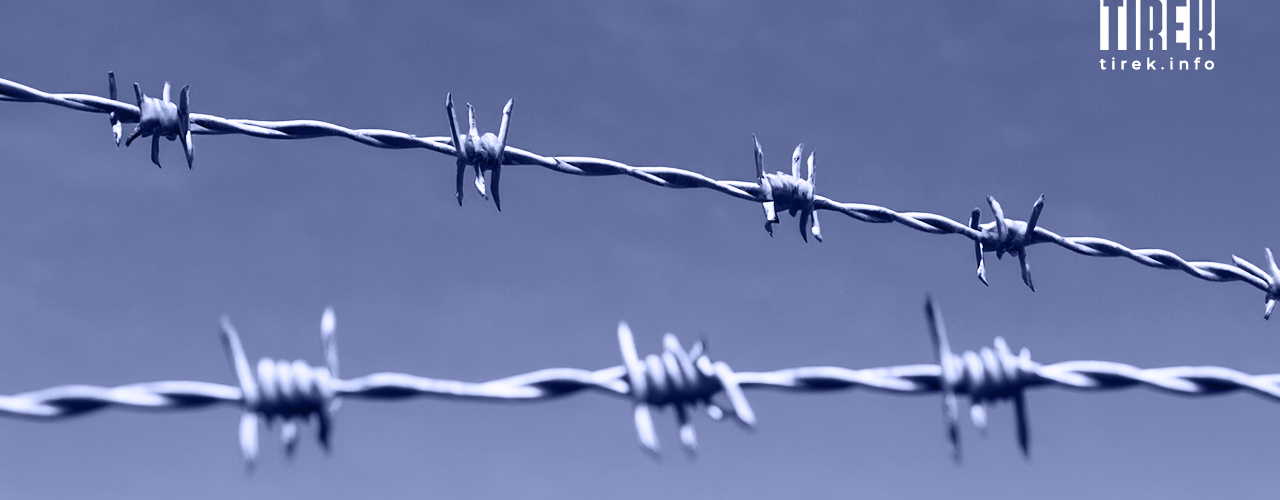
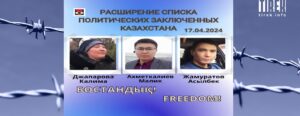
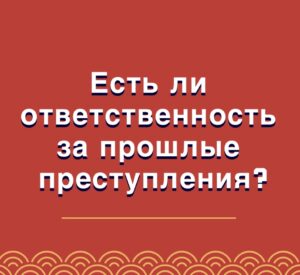
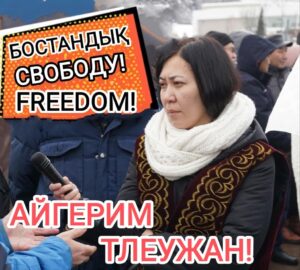
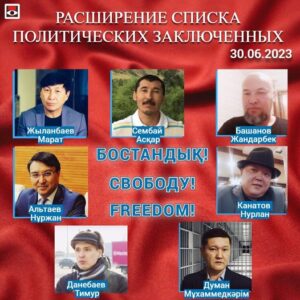
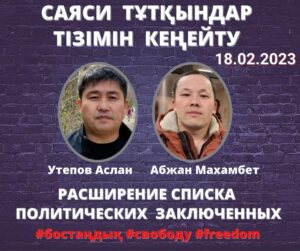
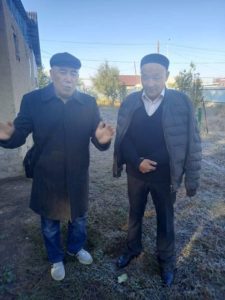
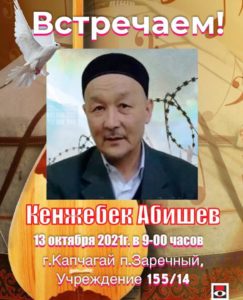
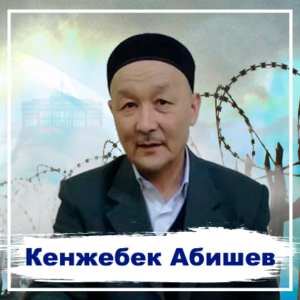
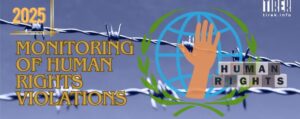
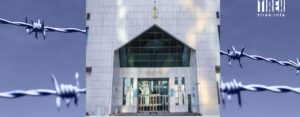
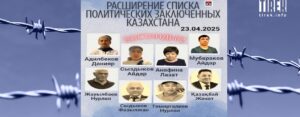
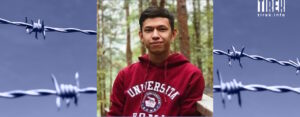
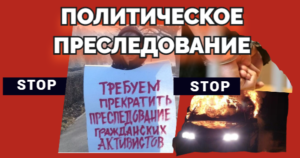
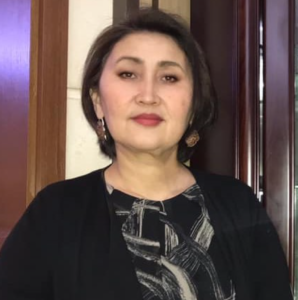
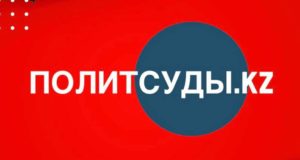
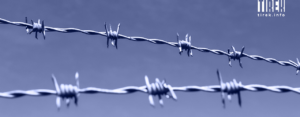
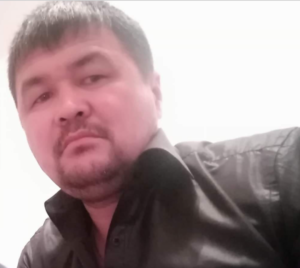
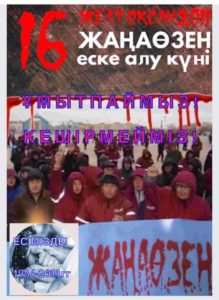
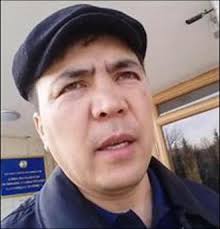
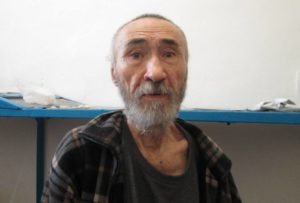
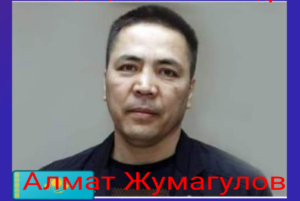
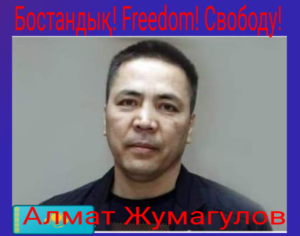
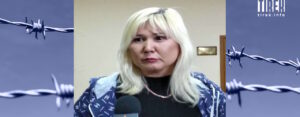
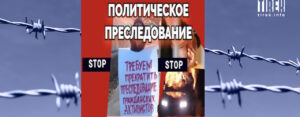
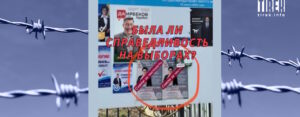

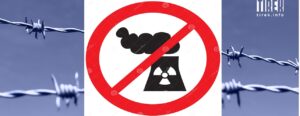
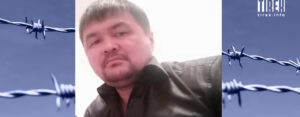
Для отправки комментария необходимо войти на сайт.